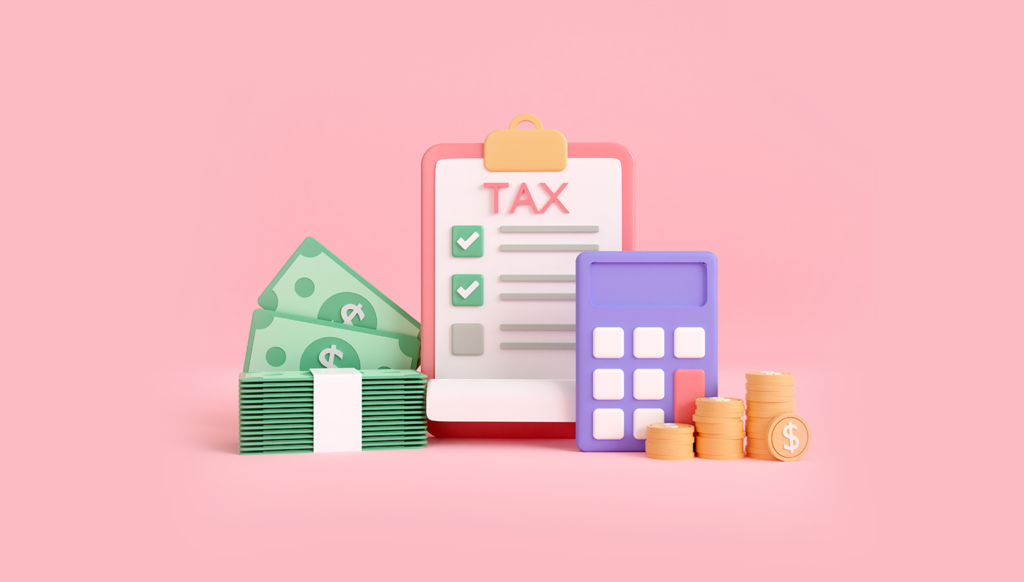As the saying goes, the early bird gets the worm, and the early business tax filer reaps uncomparable benefits. Submitting your taxes in January is best if you want a less stressful tax season.
As tax season approaches, here’s what you should know about filing and managing your company’s income tax return and what the deadlines are for staying up to date on taxes.
Every state return deadline differs, which is why this page concentrates on federal tax return deadlines. If you want to find out when your state’s tax deadline is, checking the website of your state’s Department of Revenue is advisable.
When will the IRS begin accepting returns?
Tax returns are typically accepted from mid-to-late January. Last year, the Internal Revenue Service announced they would begin accepting electronic returns from taxpayers on Monday, January 18, 2024.
When do business taxes have to be paid?
April 15 is commonly considered tax day. Individuals, sole proprietors, and C companies must file taxes on that day. In 2024, Taxes are due on April 15th.
You must file your tax return electronically by midnight on April 15 in your timezone. If you mail your return to the IRS, it is deemed on time if it is postmarked before the due date.
Keep in mind that your return will only be deemed on time if you include the correct postage and address. The IRS does not consider tax returns that are returned due to inadequate postage or an erroneous address to have been filed on time.
S companies and partnerships have early tax deadlines. These companies must file their returns by March 15, 2024. A S company must file Form 1120-S, whereas a partnership must file Form 1065.
S companies and partnerships do not pay income taxes on their earnings. The income from these entities is passed on to the shareholders or partners, who pay the tax on their personal tax returns.
Most C corporations are obliged to make tax payments throughout the year, known as “quarterly estimated tax payments.” The final estimated quarterly tax payment for enterprises for the 2023 tax year is due on January 15, 2024. If the due date falls on a holiday or weekend, estimated tax payments are moved to the next working day.
Estimated tax payments for calendar-year firms are due on the following dates for the 2024 tax year:
Earnings From Estimated Tax Payments Due
January 1–March 31, 2024 April 15, 2024
April 1–May 31, 2024 June 17, 2024
June 1–August 31, 2024 September 16, 2024
September 1 – December 31, 2024 January 15, 2025
If your company does not run on a calendar year, quarterly estimated tax payments are due on the 15th of the business year’s 4th, 6th, 9th, and 12th months.
recommended resource: business entities understanding tax implications
fiscal year vs. calendar year
Keep in mind that the filing dates for the calendar year and the fiscal year differ.
The IRS defines a calendar year as beginning on January 1 and ending on December 31. A fiscal year is 12 consecutive months ending on the final day of any month except December.
C corporations with fiscal years ending in April must file or extend their tax returns by April 15. Those that use a fiscal year system must file or extend their return on or before the 15th day of the fourth month following the end of their fiscal year.
Unless a specific type of tax year is required, businesses can use either form of the tax year to determine their annual income. Tax years are “adopted” when the initial tax form is filed using that tax year.
Once you’ve selected a tax year, you may require IRS clearance to amend it by filing IRS Form 1128.
Changing your tax year is quite simple, but be sure you follow IRS laws. The IRS defines the following actions as not constituting the adoption of a tax year:
- Applying for an Employer Identification Number (EIN)
- Applying for a tax extension on an income tax return
- Paying anticipated taxes for a tax year
Most organizations can use a calendar year, and in some cases, using a calendar year is required. These are some examples:
- No yearly accounting period
- Lack of recordkeeping
- The current tax year does not qualify as a fiscal year
- The IRS Code or income tax regulations demand a calendar year
Is your company eligible for a refund?
While personal income tax refunds are widespread, most corporations are not entitled to a tax return. This is true for sole proprietorships, partnerships, S Corporations, and limited liability companies (LLCs).
This is because these corporations are designed to generate cash for their owners. The owners then record their share of net taxable business revenue on their individual tax returns, which are calculated as part of the tax.
Because small businesses constituted in this manner do not pay taxes directly to the IRS, they cannot receive a refund. The owner may be eligible for a refund based on their income tax return.
The exception is a company organized as a C corporation. A C corporation pays taxes directly to the IRS using Form 1120, the U.S. Corporation Income Tax.
A refund may be due if the C corporation pays more in anticipated tax than is due on its final return.
The IRS treats an LLC as a corporation, a partnership, or part of the owner’s tax return. Much relies on the number of LLC members or the decisions made by the LLC.
A domestic LLC with two or more members is taxed as a partnership for federal income tax purposes until it fails to be recognized as a C corporation.
more information: how does the irs get people to pay the taxes they owe
While only C companies may be eligible for an income tax refund, there are some circumstances in which other forms of overpaid taxes may result in a refund, regardless of the type of business structure.
Overpayment of payroll taxes, for example, may occur if you overpay this account. The same is true for sales or excise taxes, although the state or municipality, rather than the federal government, typically refunds overpayments.
Employment tax overpayment or underpayment necessitates submitting an “amended return form.”
If your small business qualifies for a refund, you should file your income tax return as soon as feasible. Even if your company is not qualified for a refund, registering as a sole proprietor or partnership may result in a personal tax refund.
what are the ramifications of submitting late?
What happens if you have to file your tax return late or don’t file at all? You may receive an extra tax bill from the IRS. You must not, under any circumstances, neglect your tax status. Failure to file your return on time usually implies that any taxes owed were not paid, which can result in hefty fines.
The IRS will charge a late filing penalty as well as a late payment penalty. The amount you must pay depends on how late your file and payment are and the amount of tax you owe.
Missing the tax deadline without filing for an extension results in a penalty. For each month the return is late, Forms 1120 and 1040 charge a penalty of 5% of the unpaid tax.
Forms 1120-S and 1065 have a penalty of $235 per shareholder or partner every month late, up to a maximum of 12 months. That money can rapidly pile up. Failure to pay the amount of tax payable on time results in a 0.5% penalty for each month it remains unpaid.
There is some good news for Form 1120 or 1040 filers. The maximum penalty is 25% of the total tax payable—the 5% penalty for missing the tax due after five months is applied in the worst-case situation. If the “failure to pay” penalty is not addressed, it remains in effect for 45 months or nearly four years.
Expect interest charges in addition to penalties. Every day you are late, you are charged interest. It is applied not just to your overall tax liability but also to any incurred penalties. The interest rate is 3% above the federal short-term rate.
What if your business is a fresh entity with no taxable income? You are still required to file a tax return. New partnerships are exempt from filing a separate return.
how countick can assist
Our bookkeepers at Countick create monthly books and prepare financials for tax filing. We assist you in maximizing every potential tax deduction and providing a year-end financial package that includes everything required to file your business taxes. We can even complete your tax files for you if you’re anxious about missing the deadline.
Countick users can also access limitless on-demand tax consultations if they have any extra questions. Contact us and begin your free trial now!
what are the advantages of starting your taxes early?
Tax season is a difficult time. Stress reduction is one of the many advantages of starting your taxes early. When you know your tax file is complete before the due date, you can focus on your business rather than your tax obligations.
What if you owe money in taxes?
First, by starting early, you’ll know how much you owe the IRS and have time to work out a payment plan. You are not required to pay the money outstanding until the due date. By completing and filing your tax forms, you may figure out the best ways to come up with the funds rather than panicking on April 14.
Your tax professional will likely be more available to assist early filers as well. Getting a tax expert appointment in January or February is significantly easier than in March or April.
In fact, getting a head start on your tax preparation can save you money in the long term. You avoid IRS fines and often spend less on tax preparation since you prevent any last-minute rush expenses.
tax extensions
When a company or individual is unable to file by the due date, they must request a tax extension. For C corporations and sole proprietors filing Schedule C as part of their personal tax returns, tax extensions are due by April 15. The tax extension deadline for businesses that file as S corporations or partnerships is March 15, 2024.
Sole proprietors and C corporations must file income tax returns by October 15, 2024, if they successfully applied for a tax extension. After successfully requesting a tax extension, S companies and partnerships will have until September 16, 2024, to file their returns.
the w-2 filing deadline
Employers must complete and file each employee’s two W-2 forms, the Wage and Tax Statement. This paperwork must be given to the employee as well as filed with the IRS. The submission date for these forms is January 31, 2024.
form 1099 due date
For non-employee compensation, businesses that use independent contractors must file Form 1099-NEC. Before 2020, businesses used the form 1099-MISC for miscellaneous income to record such income.
The 1099-NEC had not been utilized since the 1980s, before 2020. The 1099-NEC is now used to report any payments made to persons who work for the company but are not on the payroll.
The 1099-MISC has not vanished but is currently only used for miscellaneous revenue such as rents, court settlements, or prizes.
This document must be sent to independent contractors and the IRS by January 31, 2024. Part A of the 1099-NEC is sent to the IRS, while Part B is delivered to the contractor.
The deadline for completing a paper return if you must provide a 1099-MISC form is February 28, 2024. If you file electronically, the deadline is March 31, 2024.
Part B, the copy you deliver to the addressee, is due by January 31, 2023. Part A of the 1099-MISC is again filed with the IRS, while Part B is mailed to the receiver.
the benefits of early filing
There are numerous benefits to filing your business taxes early, with almost no drawbacks. When you file your company income tax return early, you avoid the need to file for a tax extension.
While each company has its own reasons for requesting an extension, the inability to obtain tax documentation on time is a common driving force for small businesses.
No company wants to make mistakes on its tax return. Rushing to meet the tax deadline increases the likelihood of errors, perhaps costly ones.
Starting early implies no rushing and fewer chances of making mistakes. Keep your bookkeeping up to date, and you’ll be ready to file your business taxes as soon as feasible.




